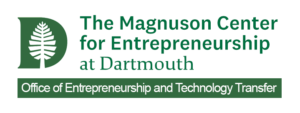Magnuson Center Providing Exciting Offerings to Students Interested In Venture Capital
Magnuson Center News
Magnuson Center Providing Exciting Offerings to Students Interested In Venture Capital

The Magnuson Center for Entrepreneurship is crafting new opportunities for students to learn about venture capital, both as a career option and in order to better understand how to secure capital for their entrepreneurial endeavors.
“The Magnuson Center is expanding ways for learning about the entrepreneurial ecosystem,” said Jamie Coughlin, director of The Magnuson Center. “The interest in Venture Capital brought the Center to offering a fireside chat with Jeff Crowe and to becoming involved with the Venture Capital Investment Competition. The Magnuson center is responding to demands by the alumni community who are venture capitalists such as Norwest Venture Partners, Borealis Venture Management Co., GGV Capital, Madrona Venture Group and many more.”
The Magnuson Center hosted a panel discussion entitled “Breaking into Venture Capital” in May, and the organizers were surprised by the large turnout. They knew then that it was time to bring more events focused on venture capital to campus.
“We found out that this is an area of great interest from the undergraduate population, and one where they may not have many avenues to learn more,” said Jin Hyun Cheong, a Ph.D. candidate in the Department of Psychological and Brain Sciences at Dartmouth College and member of the Magnuson Student Leadership. “Now, we are able to engage with many more students who had the misconception that the Magnuson Center was a place only for those who had startups, which is not true because we support all aspects and process of entrepreneurship.”
As part of the effort to educate students about venture capital, the Magnuson Center is collaborating with the Tuck Center for Private Equity and Venture Capital and offering a workshop designed to train students to compete in the Venture Capital Investment Competition (VCIC) in Boston on Feb. 1. Although a team from Tuck has competed in VCIC in the past, this is the first time that the opportunity is being offered to undergrads.
Cheong, who is leading the VCIC team, said that the experience will give students a glimpse into how venture capital works.
“Students who attend our training program can take away many things, including a general understanding of how VCs work, what a VC career is like, and how to land VC investments if they are starting a business,” he said.
Forty-five students applied for 18 slots to participate in workshops, led by James M. P. Feuille, executive director of the Center for Private Equity and Venture Capital at Tuck, and a venture partner with Crosslink Capital in San Francisco. Feuille has taught a similar graduate-level course at Tuck in the past, and led the Tuck VCIC team, which placed fourth globally last year.
Feuille’s graduate course has been condensed for the undergrad students in the workshop. Students will learn about sourcing deals, due diligence, negotiations and much more. Over winter break, they’ll analyze 29 companies, selecting their top three choices. The course is designed to be beneficial for students who want to work in venture capital and those who hope to secure funding for their projects.
“Many aspects of VC and entrepreneurship can seem very opaque,” Cheong said. “Students rarely get exposure to what it's like to start a company or even how companies raise funds from investors.”
In January, six students will be selected to compete in the VCIC. Feuille said that the competition is fun, but the coursework itself was the most valuable for his Tuck students. He expects the same for undergrads.
“The course was designed to be extremely valuable to them with or without the competition,” he said. “The competition itself was gravy at that point.”
The workshop is an opportunity for undergrads to dive deep into learning about business, something that isn’t always possible during their coursework.
“Since Dartmouth is a liberal arts school, students don’t get the same opportunities to study business as students at schools with undergraduate business programs,” Feuille said.
Participating in the workshop will help students hone their business skills and understand the risks and rewards of venture capital. Students with business ideas will have a chance to see things from the other side of the negotiation table.
“Not every entrepreneurial venture is suitable for venture capital fundraising,” Feuille said. “Students in this workshop should gain a better understanding of what VCs are looking for and what kinds of deals and opportunities are suitable for venture capital. There are many sources of financing for young companies and entrepreneurs need to understand what sources are most appropriate for their idea.”
The workshop is an important supplement to the information already being offered by The Magnuson Center, Cheong said.
“Before the VCIC Training Program, much of the Magnuson Center's programming has focused on providing information about how to get a startup off the ground and running,” he said. “However, we began to realize that this is only one side of the equation.”
Bringing more venture capital-focused events will allow The Magnuson Center to engage more students and tap into a rich network of alumni who are experienced investors.
Cheong said. “Overall I think that the VCIC training program is a step in the right direction to fully represent the values of the Magnuson Center.”
Separately, the Magnuson Center organized and hosted sixty students and members of the Dartmouth Community for a fireside chat with Jeff Crowe ’78, managing parter at Norwest Venture Partners, a Bay Area venture firm with over $6 billion under management. The students were able to hear about Crowe’s transition from entrepreneur to investor and ask him questions about venture capital.
At the event, held Nov. 7 at the Magnuson Center, Crowe encouraged students to consider venture capital as a viable career option.
“The pathway into venture capital is not always clear and obvious,” said Crowe, who is Chair of The Magnuson Center Board of Advisors and a Trustee for Dartmouth College. “So many students attending this event is the evidence of the need to better expose our students to various nontraditional career paths. I’m happy to see The Magnuson Center playing this role.”
At the event, Crowe spoke about his own career path. He was a history major at Dartmouth, before becoming an entrepreneur in the tech space and eventually transitioning to venture capital. Crowe outlined the two paths to a career in venture capital: working as an investment banker before switching to a capital firm, or transitioning from entrepreneurship to investing.
“Although it’s often seen as part of financial services industry, there’s an entrepreneurial component to venture capital,” said Marc Sevastopoulo, D’20 and member of The Magnuson Center’s Student Leadership Board, who moderated the event alongside Chloe Baker, D’21.
Baker, who is also on the student leadership board, said it was heartening to hear about the different ways to secure a career in venture capital.
“Jeff talked about how his path to where he is at today looked nothing like what he expected it to,” she said. “He said his experience as an entrepreneur and CEO himself made him better able to advise the ventures he worked with and spot potential.”
Crowe was able to give the students a realistic glimpse of an early venture capital career.
“The impression I got was that jumping right into VC is a viable career path, but it isn’t as glamorous or easy as one might think,” Baker said.
Crowe discussed the importance of finding the right investment partnership. Some venture capitalists are strategic partners, while others are simply looking to write a check. Entrepreneurs should carefully weigh their options, and not take the first offer they are given, he emphasized.
“When you are new to entrepreneurship it is tempting to take whatever money is offered to you, but that an investor and venture need to be more careful and make sure it is a good fit to avoid trouble later on,” Baker said.
At the same time, venture capitalists need to refine their value proposition, to attract entrepreneurs with a lot of potential.
“Having the check is no longer enough,” said Sevastopoulo. “At this specific time, entrepreneurs have much more leverage to take competing offers and win better terms and valuations.”
Speaking with Crowe, who has been on both sides of investment negotiations, was valuable for students who are interested in launching businesses and those who hope to make a career of investment.
“Being literate on how you get capital, often via VC, is part of owning and running a successful business,” Sevastopoulo said. “Having the idea is the biggest piece of the puzzle, but capital is an important piece of the puzzle as well.”
Baker added, “It is important for students, particularly those interested in business or entrepreneurship, to learn about VC because it plays a critical role in how innovation is realized and how ambitious grads can find success.”
Being able to ask questions of someone as successful as Crowe gives students at The Magnuson Center and in the Dartmouth community a leg up toward entrepreneurial success.
“Jeff is one of the most dynamic, engaging, down to earth people that I’ve been exposed to at Dartmouth,” Sevastopoulo said. “You’d never guess how successful and busy he is, based on how he engages with young people and how eager he is to talk with undergrads. I don’t know of anyone as eager to help Dartmouth students as Jeff Crowe is.”

